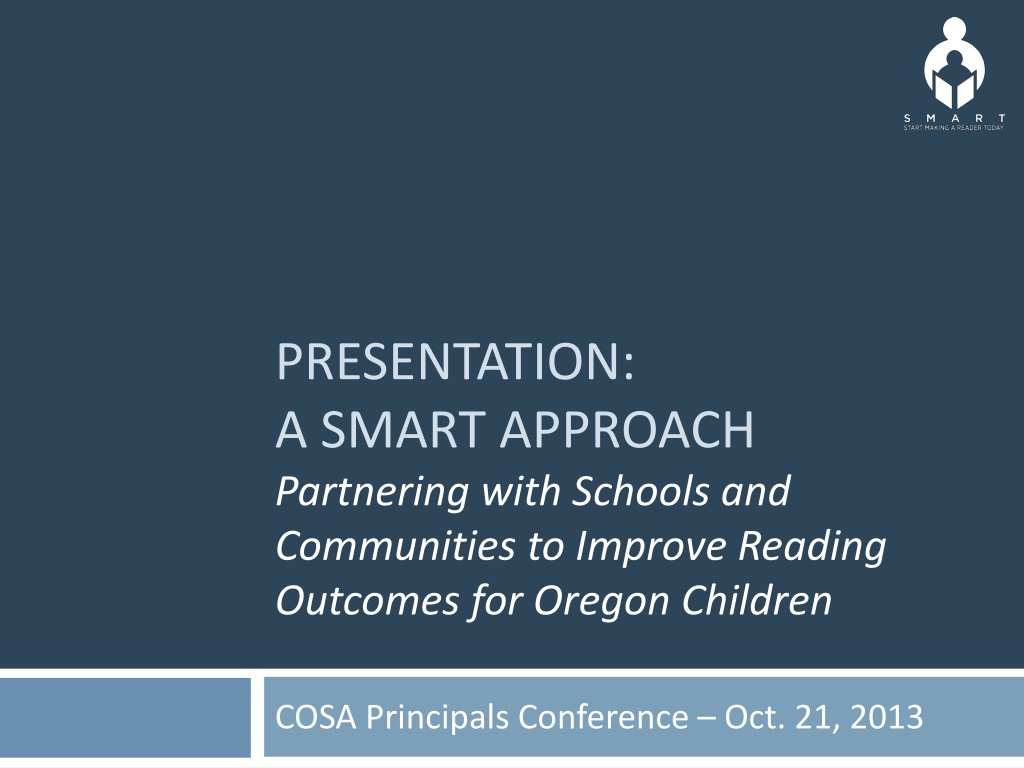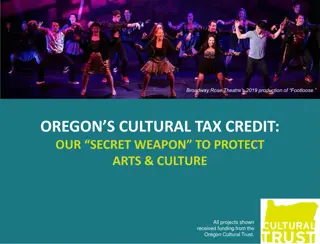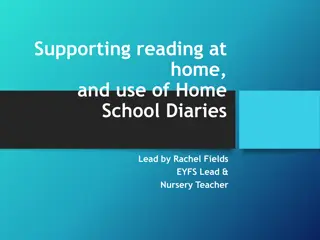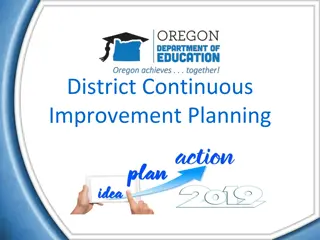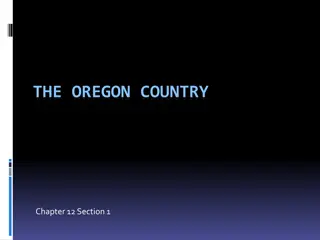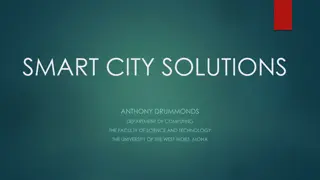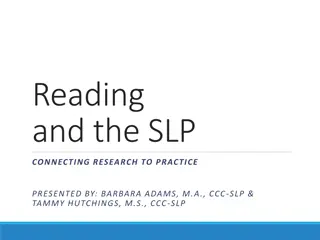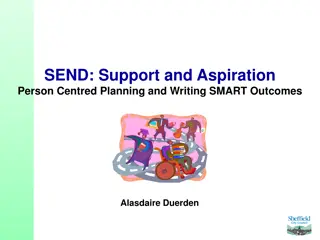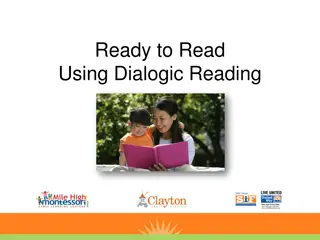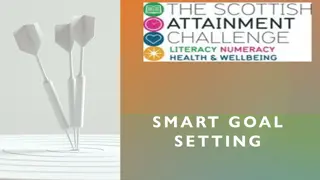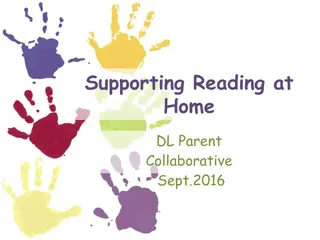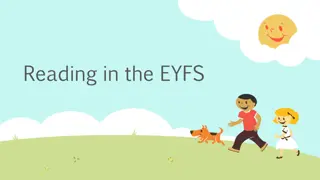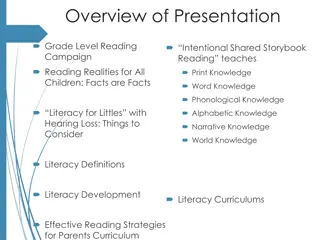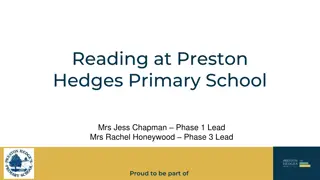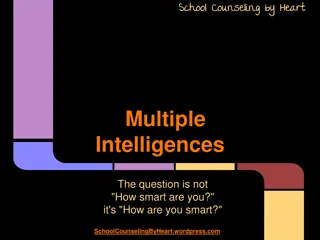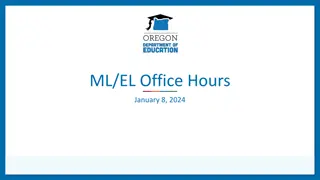A Smart Approach: Improving Reading Outcomes for Oregon Children
Partnering with schools and communities, SMART Oregon focuses on enhancing reading outcomes for children through one-on-one support, book provisions, and community engagement. Since its launch in 1992, SMART has made a significant impact, with thousands of volunteers, children served, and books distributed, all contributing to improved literacy levels. Studies and surveys have shown the positive effects of SMART on students, teachers, and parents, highlighting increased reading benchmarks, literacy outcomes, and student enthusiasm towards reading.
Download Presentation

Please find below an Image/Link to download the presentation.
The content on the website is provided AS IS for your information and personal use only. It may not be sold, licensed, or shared on other websites without obtaining consent from the author. Download presentation by click this link. If you encounter any issues during the download, it is possible that the publisher has removed the file from their server.
E N D
Presentation Transcript
PRESENTATION: A SMART APPROACH Partnering with Schools and Communities to Improve Reading Outcomes for Oregon Children COSA Principals Conference Oct. 21, 2013
Speakers Jessica Corcoran, SMART Communications Director Diane Turnbull, SMART Central Area Manager Rosemary O Neil, Mountain View Elementary Principal
Statewide Overview Jessica Corcoran, SMART Communications Director
About SMART Oregon business leaders concerned about literacy Model developed to improve reading outcomes and engage community: One-on-one reading support Books for kids Community-based model engaging Oregon citizens to support schools and students Launched in 1992 8 schools in Portland & Bend
SMART by the Numbers Since 1992: 108,000 volunteers 160,000 children served 2+ million books given away 3+ million hours spent reading with kids
2013-14 School Year 9,000 children 272 sites 5,000 volunteers 27 counties 126,000 books
Outcomes Eugene Research Institute Independently commissioned gold-standard study SMART students 60% more likely to meet reading benchmarks 2012-13 Year-end Surveys Principals and Teachers: 95% felt SMART contributed to school s literacy outcomes 91% felt that students benefited significantly from SMART Parents: 90% said SMART helped their child become a stronger reader 2012-13 Student Milestones 90% of students in SMART showed increases in enthusiasm about reading, eagerness to interact with books, self-esteem and confidence
SMART in the Statewide Landscape Education reform top priority for Oregon Where can SMART help? Early Literacy Initiative Investments to improve kindergarten readiness and 3rd grade reading proficiency Programs that foster joy of literacy Support for lowest achieving schools (Focus and Priority) Currently serving 26 of 68 sites - ~38%
SMART Implementation Diane Turnbull, SMART Central Area Manager
SMART 101 PreK-3rdgrade students Mid-October to mid-May Volunteers Roles: Site Coordinators & Readers Screening Training Students One hour of consistent, one-on-one reading time weekly Choose up to 2 books each month to keep (14 per year)
School Partnerships School partnership established Principal determines priorities for service Teachers select students to participate (in Standard Model) who: Need additional help with comprehension, fluency and accuracy Have limited books in the home Need of one-on-one relationships with caring adults Aren t served in other programs
Delivery Models Standard SMART K-3 Pull-out model serving students selected to participate Two 30-minute reading sessions per week PreK SMART PreK only Serves entire classroom Three 15- to 20-minute reading sessions per week KSMART Kindergarten only Serves entire classroom Three 15- to 20-minute reading sessions per week
Changing with the Times Increase PreK and kindergarten service Learn about populations served Remain flexible and adaptable to changing school needs and regulations Support school and student priorities Common Core
Principals Perspective Rosemary O Neil, Principal, Mountain View Elementary, Corvallis
